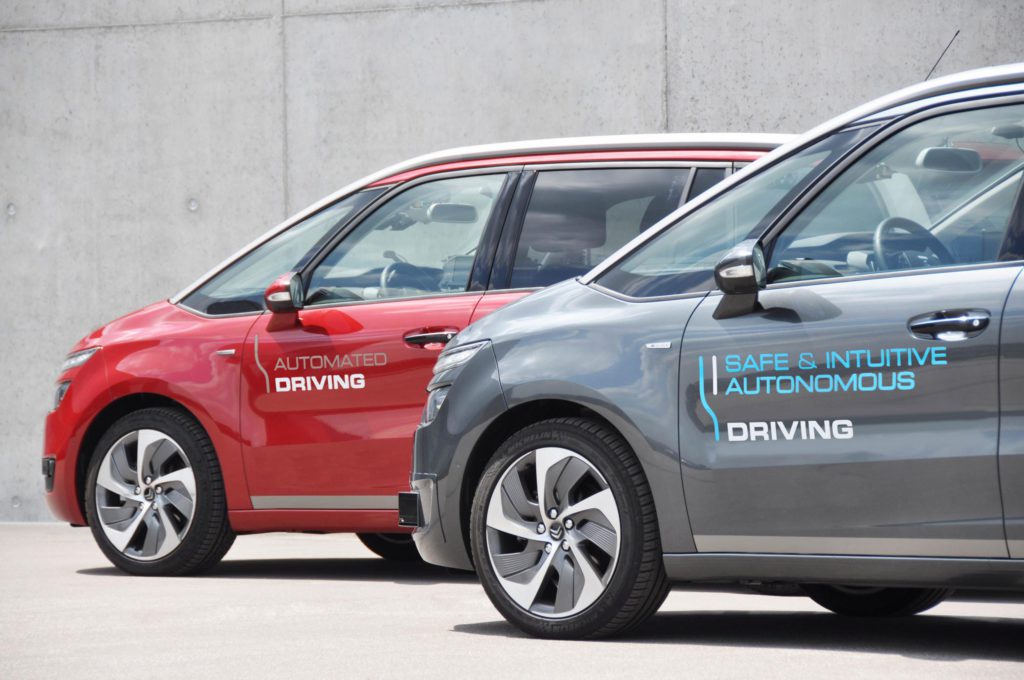PSA and VW Group projects take driverless cars to public roads
04 April 2019

4 April 2019
PSA Group is continuing autonomous driving trials in France and Volkswagen (VW) Group is testing automated vehicles in urban traffic in Hamburg as carmakers push to introduce certain aspects of the technology in road cars.
Since the start of April, PSA Group’s vehicles, equipped with Level 3 autonomy, have been operating on open roads in France as part of the European L3Pilot project. Throughout the duration of the project, six to eight vehicles will undergo intensive driving tests to validate autonomous functions on dual carriageways.
The L3Pilot project aims to test and validate autonomous driving as an efficient and safe means of transport. Tests will all be conducted on open roads in several European countries. They will assess technical aspects, driving behaviour, user acceptance, impact on traffic and safety in various driving conditions (urban environments, roads and motorways).
The French company’s participation in the project is strengthening its expertise in the development of autonomous vehicles thanks to a global ecosystem of partners, including European carmakers, research centres and roads authorities. PSA will share the project feedback with the other partners to fine-tune the necessary systems and establish a code of good practices.
The four-year European project launched in 2017 and has an overall budget of €68 million, half of which is funded by the European Commission.
PSA’s participation in this international project confirms its commitment to the development of autonomous driving technologies. With its ′Autonomous Vehicle for All’ (AVA) programme, the Group is gradually bringing autonomous driving functions to the market.
The Group’s autonomous car will be built around these concepts:
- Easy-to-use technology for all: To accompany the driver with self-driving functions, the Groupe PSA designs interfaces that are simple to use and intuitive, so that drivers can interact comfortably with their cars, and are able to take the wheel at any time;
- An offer for all: built of different degrees of autonomy to respond to customers’ different expectations;
- A programme for all: deployed on the Group’s three brands, Peugeot, Citroën and DS.
PSA announced details of its autonomous developments for the first time in 2017. To meet the challenges surrounding connected and autonomous vehicles, the carmaker is developing a new electronic architecture (NEA) in its vehicles. This solution guarantees safe operation in all situations as well as passenger safety and data security. The company is also researching new perception technologies that reconstruct the vehicle’s environment, backed up by automatic control algorithms that integrate artificial intelligence building blocks. There is also ongoing activity to change regulations and standards in the automotive market.
Level 3 autonomy is not being developed by all carmakers, with many believing that the stepping stone between partial and fully driverless functions is not worthy enough. This level offers automated driving in defined situations without driver supervision, with the driver taking the wheel if requested by the system.
Meanwhile, Volkswagen Group is testing automated vehicles in urban traffic in Hamburg. This is the first time Volkswagen has begun to test automated driving to Level 4 at real driving conditions in a major German city. A fleet of five e-Golf cars, equipped with laser scanners, cameras, ultrasonic sensors and radars, will drive on a three-kilometre section of the new 9-kilometre digital test bed for automated and connected driving that is being constructed in the city. Completion of the test bed is scheduled for 2020, with Hamburg upgrading traffic lights with components for infrastructure-to-vehicle (I2V) and vehicle-to-infrastructure (V2I) communication.
Axel Heinrich, Head of Volkswagen Group Research, commented: ′The tests centre on technical possibilities as well as urban infrastructure requirements. In order to make driving even safer and more comfortable in future, vehicles not only have to become autonomous and more intelligent – cities must also provide a digital ecosystem that enables vehicles to communicate with traffic lights and traffic management systems as well as with one another.’
Volkswagen Group Research is collaborating with all brands and relevant Group departments to enable the functionality of automated driving on public roads – right through to Level 5. The results of the test drives, which will be continuously evaluated and take full account of all data protection rules, will be incorporated in the Group’s numerous research projects on automated driving and will test customer-centric services and optimise individual transport.
The goal is to be in a position to offer customers concrete products for the automated transport of goods and passengers on public roads a few years from now.